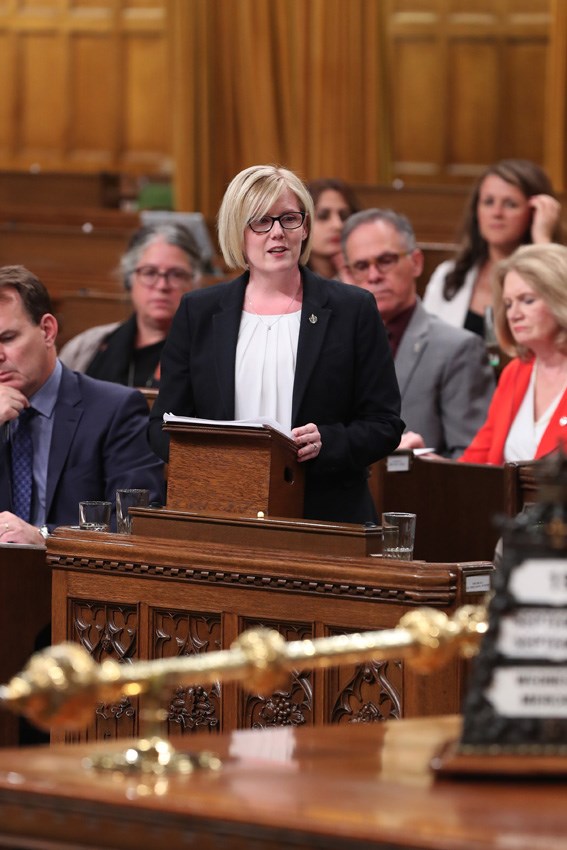Second reading has wrapped up in the House of Commons on what Delta MP Carla Qualtrough is calling a historic bill on disability rights.
Qualtrough, the minister responsible for accessibility, recently stood up in the House to speak to Bill C-81, which aims to create a barrier-free Canada.
“It is truly an honour to stand up in the House of Commons and open debate on the second reading of Bill C-81,” Qualtrough said. “This bill, Mr. Speaker, enhances the legal framework for addressing the barriers to inclusion faced by millions of Canadians on a daily basis. From a substantive point of view, it requires the Government of Canada and entities within federal jurisdiction to address not only the barriers themselves, but also the systems that perpetuate these barriers. In and of itself, this will promote equality of opportunity.
“This bill sends a clear message to Canadians with disabilities that no more will they be treated as an afterthought.”
Qualtrough said the bill will significantly transform how Canada addresses discrimination and ensures equality and inclusion for all.
“As the first-ever minister responsible for accessibility, I take my responsibilities seriously,” she said. “I want to set a standard worthy of Canadians and Canada’s place in the world. Bill C-81 is meant to promote broad organizational and cultural change across the nation. It will benefit all Canadians, especially Canadians with disabilities, by taking the steps to realize a truly accessible and inclusive Canada.”
In June of 2016, the federal government launched a public consultation process across the country, meeting with Canadians and stakeholders to talk about what an accessible Canada meant to them.
There were 18 public consultations and eight thematic roundtables, as well as an online component, a national youth forum with the prime minister and discussions with Indigenous groups.
In a follow-up interview with the Optimist, Qualtrough said the bill has moved onto a House of Commons committee, then will come back to the House for third reading before going to the Senate for final approval.
If everything stays on track, she hopes the bill is approved next spring.
“If this goes through this will be the most significant piece of law on disability rights since the Charter,” she said. “It’s my job to continue the conversation going at the national level as we all talk about accessibility for all Canadians.”



